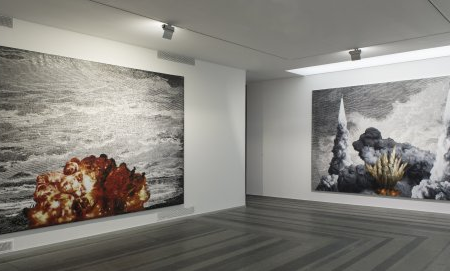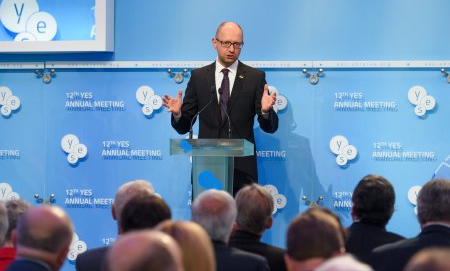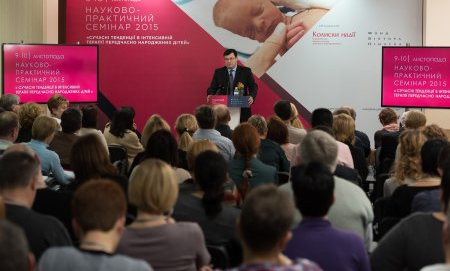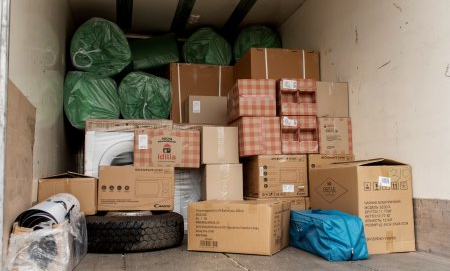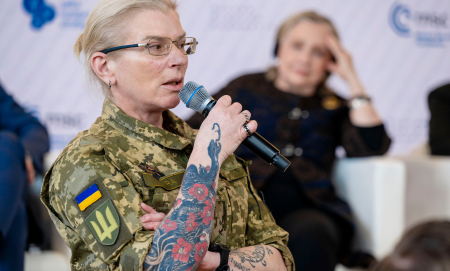News
Victor Pinchuk Foundation Hosts the Black Book of Russian War Crimes: Facts of Genocide Discussion on the occasion of WEF
On 17 January 2023, the Black Book of Russian War Crimes: Facts of Genocide discussion was held in Davos (Switzerland) on the occasion of the World Economic Forum. The event was held within the Ukraine Is You project organized by the Victor Pinchuk Foundation, PinchukArtCentre in cooperation with the Office of the President of Ukraine. The project brings together global thinkers, experts and people from the ground in Ukraine to discuss the assault on the country, Russian war crimes and also the hope and empowerment of defending freedom and independence.
Among the participants of the discussion were Oleksandra Matviichuk, Chair, Center for Civil Liberties; Patrick Desbois, Yahad-In Unum Founder; Andriy Smirnov, Deputy Head of Ukraine President’s Office (online); Daria Gerasymchuk, Advisor, Commissioner of the President of Ukraine on Child's Rights and Rehabilitation; Ukrainian Prosecutor General Andriy Kostin (online) and Serhii Plokhii, Ukrainian History expert, Director of the Ukrainian Research Institute, Harvard University. The event was moderated by Gillian Tett, Editor-at-Large and Chair of the Editorial Board, FT Moral Money.
Andriy Smirnov stated that 9,200 civilians have fallen victim to Russia’s war crimes in Ukraine, but Ukranians will prevail: “Russia is an aggressor state, this is not just a hypothesis in a diplomatic discussion, it is an obvious and proven fact.”
“We survived and withstood the Soviet repression of Ukraine; we survived starvation three times in one century. We will definitely withstand now when they want us to freeze without heating, light and water and medical care.”
Andriy Smirnov called for the assistance of the international community to make the aggressors accountable for their actions and bring justice for the war crimes: “Since the beginning of aggression, the legal team of the President’s Office has been searching for an effective legal weapon. The weapon that for some reason has been hidden in the world far away in the bureaucratic drawers. This weapon is responsibility for the crime of aggression. No one has searched for this weapon in the past 70 years despite the acts of terror and aggression in Georgia, in Chechnya and in Crimea and Donbass most recently in 2014.”
“The establishment of a special international tribunal is the only known alternative and effective mechanism for bringing to justice for the crime of Russia’s aggression against Ukraine. But once again I emphasize that the world history of legal victories over modern aggressor is yours to create.”
Taking the floor, Serhii Plokhii recalled multiple attempts of genocide during the last century: “That is the second time in Ukrainian history in less than 100 years that the crime of aggression and genocide were committed when this key decision was made in Moscow, in the centre of Soviet Union or the centre of the empire. Many would describe this war as an imperial war or a colonial war and certainly history supports that interpretation.”
“The issue of intent, whether you can prove that the destruction is intentional or they just missed the right target and they hit the wrong one, is the trickiest point, as it seems to me from legal and historical points of view.”
Serhii Plokhii added: “What’s unique about this war is that the main narrative, the justification of the war, is the argument that Ukrainians don't exist or shouldn’t exist as a nation. The general framework of the war and the context in which these atrocities are taking place is happening within the discourse, within the argument that fits perfectly the definition of genocide.”
“There is hope that this time there will be accountability. The biggest issue is of course Russia being the permanent member of the UN security council. The entire structure and the definition of the genocide was formulated with enormous influence of either the Soviet Union or Russia,” he commented on the accountability issue.
Daria Gerasymchuk outlined the characteristics of genocide that Ukrainian children are undergoing: “Eight signs of genocide: both the wounding and killing of our children, the transfer to the custody of Russian citizens for adoption, forced deportation and relocation, the change of citizenship for our Ukrainian children, and the creation of such living conditions that are unsuitable for life, only for survival under the occupation of invaders.”
The scale of the implications are vast: “More than 7.5 million Ukrainian children who lived in Ukraine are witnesses to this. 457 will definitely not be able to testify because they were killed by the Russian army, but others will.”
Daria Gerasymchuk proceeded to outline the impact of this war on children: “We can see a clear genocidal intent in the public rhetoric of Putin and other senior political leadership and top commanders of the Russian Federation. They openly a state that Ukraine has no right to exist, there is no Ukrainian nation, there is no Ukrainian language and there is no Ukrainian culture. We have a choice either to be killed or to be re-educated as Russian citizens and that’s why they deliberately targeted children, because children are the future.”
Oleksandra Matviichuk discussed the other aspect of genocide: “We have experienced over eight years of occupation of Ukrainian territories where Russians tried to totally eradicate our identities. Crimea, Donetsk and Luhansk regions have been occupied all these years.”
“So we have to understand that they do not need to kill people in order to extinguish an ethnic group. You can change the mindset in such a way that you can bring up children as Russians, and the ethnic group will disappear.”
The last point Oleksandra Matviichuk made was about the importance of holding a discussion about how to stop genocide: “How to stop it? This is a question which has to be discussed. Rwanda didn’t start in one moment, there were a lot of dangerous, alarming signals to international communities who ignored them. I am afraid that in some situations it takes something so horrible to take place that even the most severe sceptics cannot doubt that it is a genocide. I want us to prevent this..”













